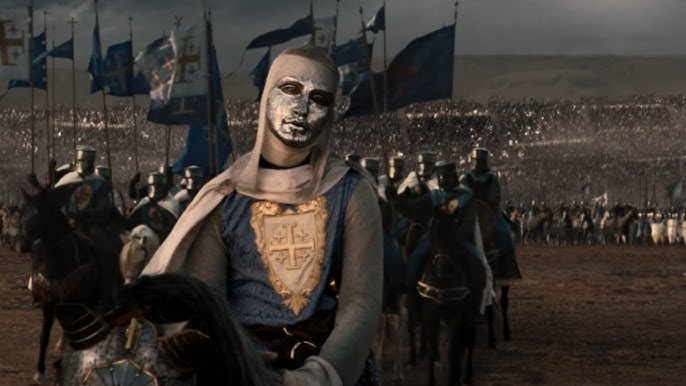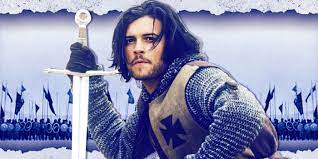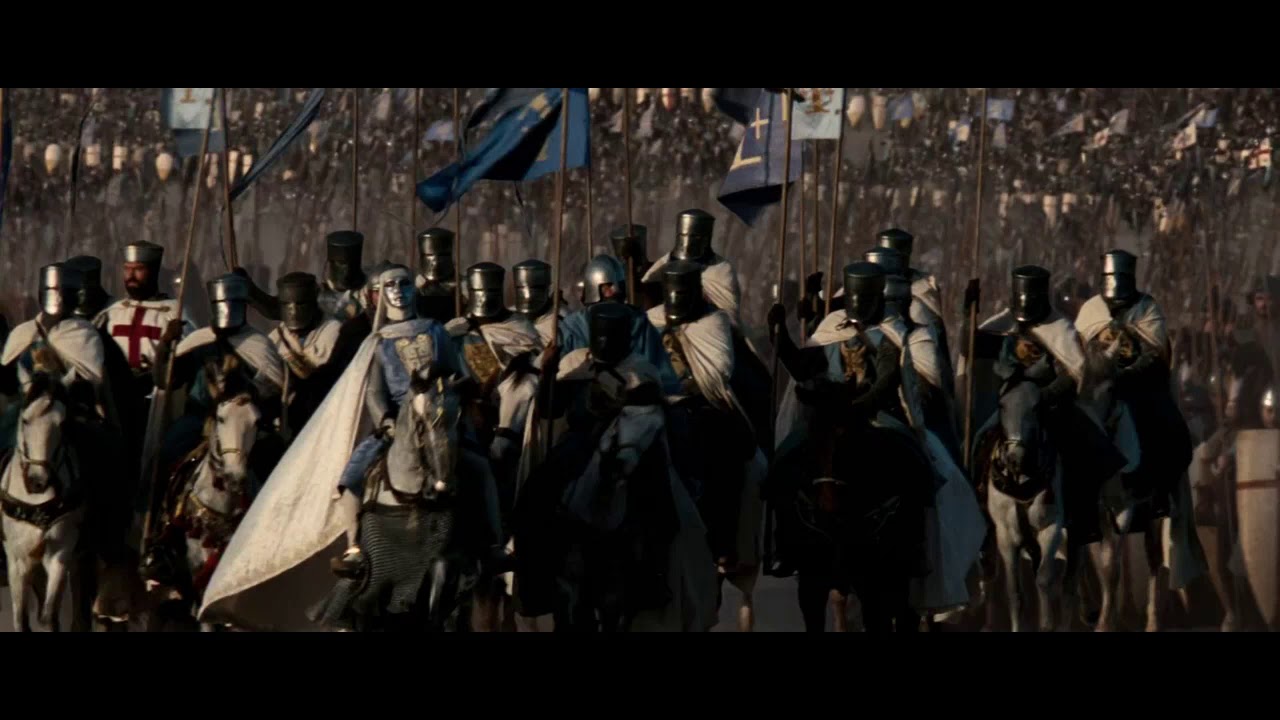Kingdom of Heaven (2005)

Kingdom of Heaven (2005) Review: A Visually Stunning and Thought-Provoking Epic
Introduction Ridley Scott’s Kingdom of Heaven (2005) is a grand historical epic set during the Crusades, exploring themes of faith, honor, and diplomacy. With breathtaking cinematography, intense battle sequences, and a strong cast led by Orlando Bloom, the film offers a sweeping narrative that goes beyond the typical medieval war story. While the theatrical cut received mixed reviews, the Director’s Cut is widely regarded as one of Scott’s best works. This review delves into the film’s plot, performances, direction, historical accuracy, and lasting impact while incorporating SEO-friendly keywords such as “Kingdom of Heaven review,” “Ridley Scott historical movies,” and “best medieval epics.”
Plot Summary The story follows Balian of Ibelin (Orlando Bloom), a blacksmith haunted by the loss of his family. When Baron Godfrey of Ibelin (Liam Neeson) reveals himself as Balian’s father and bequeaths him his title, Balian embarks on a journey to Jerusalem. Upon arrival, he finds the Holy City on the brink of war, caught between the fragile peace maintained by the leprous King Baldwin IV (Edward Norton) and the rising tensions with the Muslim leader, Saladin (Ghassan Massoud).
As Balian rises to prominence, he struggles with questions of faith, morality, and duty. With the kingdom facing inevitable war, he becomes a key figure in the defense of Jerusalem, ultimately choosing diplomacy and humanity over blind zealotry.
Orlando Bloom’s Performance as Balian Orlando Bloom delivers a restrained yet compelling performance as Balian. Unlike traditional heroic leads, Balian is not a battle-hardened warrior but a man grappling with his beliefs and the corrupt world around him. His arc from a grieving blacksmith to a respected knight and leader is nuanced, making him one of Bloom’s most underrated roles.
Supporting Cast and Standout Performances
- Edward Norton as King Baldwin IV: Norton’s portrayal of the masked, leprosy-stricken king is one of the film’s highlights. Despite being hidden behind a silver mask, his regal presence and wise diplomacy make him a memorable character.
- Eva Green as Sibylla: Green adds emotional depth to the film, portraying a strong yet tragic woman torn between love, duty, and the volatile politics of Jerusalem.
- Ghassan Massoud as Saladin: Massoud’s Saladin is depicted as a noble and intelligent leader, challenging one-dimensional portrayals of historical figures often seen in Hollywood.
- Brendan Gleeson as Reynald de Chatillon and Marton Csokas as Guy de Lusignan: Both actors deliver strong performances as arrogant, war-hungry nobles whose actions escalate the conflict.
Ridley Scott’s Direction and Cinematic Excellence Ridley Scott brings his signature grand-scale storytelling to Kingdom of Heaven. His use of sweeping landscapes, intricate set designs, and epic battle sequences immerse the audience in the medieval world. The siege of Jerusalem is a masterclass in war cinematography, with dynamic camera work and practical effects enhancing the realism.
However, the film’s theatrical cut suffered from pacing issues and character depth omissions. The Director’s Cut, which restores nearly 45 minutes of footage, vastly improves the narrative, providing deeper character arcs and a more cohesive story. This version is often cited as one of Scott’s best films.
Themes of Faith, Honor, and Tolerance
- Faith vs. Fanaticism: The film presents a nuanced view of religion, highlighting the dangers of blind zealotry and the virtue of tolerance. Balian embodies a secular, humanist perspective, advocating for peace over religious extremism.
- Honor and Duty: The moral dilemmas faced by Balian and King Baldwin IV showcase the struggle between personal ethics and political necessity.
- The Cost of War: Unlike traditional war epics that glorify combat, Kingdom of Heaven explores the heavy toll of war on both victors and the defeated.
Historical Accuracy and Creative Liberties While Kingdom of Heaven captures the essence of the Crusades, it takes creative liberties with historical events and characters.
- Balian of Ibelin: The real Balian was an experienced nobleman, not a blacksmith. His role in defending Jerusalem, however, is historically accurate.
- Saladin and Baldwin IV: The film accurately portrays Saladin’s tactical brilliance and King Baldwin’s efforts to maintain peace.
- The Siege of Jerusalem: The battle is dramatized but remains one of the more realistic depictions of medieval warfare in film.
Despite these inaccuracies, the film succeeds in presenting a balanced view of the period, avoiding simplistic good-versus-evil narratives.
Box Office Performance and Critical Reception Upon release, Kingdom of Heaven received mixed reviews, with critics praising its visuals and performances but criticizing its pacing and underdeveloped characters in the theatrical cut. However, the Director’s Cut received near-universal acclaim, with many calling it one of Ridley Scott’s finest achievements.
The film grossed over $218 million worldwide, performing modestly at the box office but gaining a strong following in subsequent years.
Cultural Impact and Legacy Over time, Kingdom of Heaven has been reassessed as a significant historical epic. Its themes of tolerance and diplomacy are more relevant than ever, making it a thought-provoking film for modern audiences. The Director’s Cut has elevated the movie’s status, with many considering it one of the best historical dramas of the 21st century.
Final Verdict Kingdom of Heaven (2005) is a visually stunning and thematically rich historical epic that stands out in Ridley Scott’s filmography. While the theatrical cut may feel incomplete, the Director’s Cut transforms it into a cinematic masterpiece. With outstanding performances, epic battle sequences, and a nuanced portrayal of historical events, Kingdom of Heaven remains a must-watch for fans of historical films and grand storytelling.











